IRP Seminars will be in person meetings this semester, unless otherwise noted. Connection information for virtual seminars will be sent out, in advance, to the IRP Seminar email list.
January 26, 2023
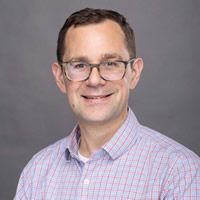 Racial Differences in Retail Prices Paid
Racial Differences in Retail Prices Paid
Dan Sacks, Associate Professor, Department of Risk and Insurance, University of Wisconsin–Madison
12:15-1:30pm, 8417 William H. Sewell Social Sciences Building
Black and Hispanic households tend to pay 1–2 percent higher prices than white households for physically identical products. The racial price gap is not explained by differences in income, demographics, or education. Instead it is entirely explained by three factors: Black and Hispanic households buy smaller packages with higher unit prices, benefit less from coupons, and live in places where all residents tend to pay high prices. Place-based price differences appear to be driven by differences in carrying and transportation costs rather than supermarket presence.
February 2, 2023 – Canceled
 Power to the People: Understanding Energy Insecurity in America
Power to the People: Understanding Energy Insecurity in America
Diana Hernández, Associate Professor, Mailman School of Public Health, Columbia University
12:15-1:30pm, 8417 William H. Sewell Social Sciences Building
The cost of household energy and its uses has increased exponentially in the past four decades. For many low-income households, this equates to higher bills and greater precarity in ensuring access to energy services such as electricity, natural gas, and heating fuel. Dr. Hernández will share her pioneering work on energy insecurity in the United States. Sharing findings from extensive surveys and in-depth interviews conducted over the course of her career, she will share insights on the prevalence, process, personal impacts, and policy implications of America’s hidden hardship.
February 9, 2023
 Black Fathers – Indispensable Partners in the Health and Well-Being of Black Families
Black Fathers – Indispensable Partners in the Health and Well-Being of Black Families
Alvin Thomas, Assistant Professor, Department of Human Development & Family Studies, University of Wisconsin–Madison
12:15-1:30pm, 8417 William H. Sewell Social Sciences Building
Black fathers have long been thought of as functioning, at best, under a cloak of invisibility; at worst they have been dogged by stereotypes and misconceptions characterizing them as deadbeats, uninvolved, uninterested, and largely absent. This dilemma is most keenly experienced by Black fathers who do not share continued residence with their children (i.e., nonresident parents). Professor Thomas will juxtapose these societal misconceptions against the scientific literature and present his recent work on Black fatherhood and fathers’ involvement in the prenatal and perinatal spaces.
Wednesday, February 15, 2023
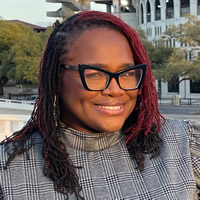 Lunch & Learn Talk
Lunch & Learn Talk
The County Line: An Analysis of Race and Place in the Child Support Enforcement System
Maretta McDonald, IRP National Poverty Fellow, Administration for Children and Families, U.S. Department of Health and Human Services
12-1:15, 3470 William H. Sewell Social Sciences Building
Extralegal factors like race and place both matter when trying to understand nonresident parents’ experiences with the Child Support Enforcement (CSE) system. This presentation will explore and expand upon the following research question: How do courts’ assignment of child support orders within a county vary depending on the rural-to-urban and racial composition spectrums of a community? Analysis will draw on 2015–2019 county-level Child Support Enforcement data from Louisiana to assess CSE-supervised court orders per county.
February 16, 2023
 Race and Discretionary Decision-Making in the Administration of SNAP
Race and Discretionary Decision-Making in the Administration of SNAP
Jennifer R. Daniels, IRP National Poverty Fellow, Administration for Children and Families, U.S. Department of Health and Human Services
12:15-1:30pm, 8417 William H. Sewell Social Sciences Building
Welfare reform has resulted in widespread state-level variation in safety net provisions and associated program access and outcomes. A large body of research demonstrates the racialized consequences of a decentralized safety net. While much of this work has focused on welfare-to-work programs, there is increasing attention on the consequences of states’ discretionary decision-making in centralized safety-net programs. This project examines the Supplemental Nutrition Assistance Program (SNAP) and focuses on a particularly vulnerable target population: able-bodied adults without dependents. Results suggest (1) an adverse relationship between state-level Black racial composition and states’ imposition of administrative burden costs and offering less support in SNAP and (2) a positive relationship between states’ Latino composition and reductions in administrative burdens in SNAP.
February 23, 2023
 What Makes Systemic Discrimination ‘Systemic?’ Formal Models and Real-World Examples
What Makes Systemic Discrimination ‘Systemic?’ Formal Models and Real-World Examples
David McMillon, Assistant Professor, Economics Department, Emory College
12:15-1:30pm, 8417 William H. Sewell Social Sciences Building
Systemic Discrimination has become one of the most salient, misunderstood, and definitionally amorphous concepts, not only in the social sciences but also in political and legal circles. This presentation will draw on work in economics, public health, education, sociology, and law—as well as more mathematically technical fields—to clarify common themes that appear to make this type of discrimination “systemic.” Formal arguments will be examined in several popular contexts including but not limited to, police brutality, health disparities, and the racial wealth gap. These clarifications can improve scholarly discourse on the topic, resolve measurement issues, and lead to policy solutions that avoid unintended consequences of analyses that misunderstand the “system” in question.
March 2, 2023
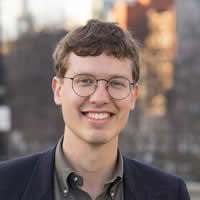 The End of Inequality? Effects of Work Reorganization amid Resurgent Worker Power
The End of Inequality? Effects of Work Reorganization amid Resurgent Worker Power
Nathan Wilmers, Sarofim Family Career Development Associate Professor and Associate Professor of Work and Organization Studies, Sloan School of Management, Massachusetts Institute of Technology
12:15-1:30pm, 8417 William H. Sewell Social Sciences Building
Over the last 10 years, pay increased more for low-wage workers than for managers and professionals. This unexpected decline in U.S. inequality is mainly due to tight labor markets rather than revitalized unions or re-embedded employment relations. Will these fragile gains be institutionalized as higher-paying jobs? In this talk, Professor Wilmers proposes three scenarios in which employers institutionalize higher-paying jobs for low-wage workers: a wage-effort bargain, relational contracting over discretion, and skill upgrading. Two projects test whether these employer strategies actually benefit workers; one uses linked U.S. employer-employee data and job descriptions from online job postings. This lets us study whether, when a job shifts toward more autonomy or task complexity, earnings increase for new hires into that job. The other reviews the wage-effort bargain using a measure of work intensification drawn from online job reviews. This research shows how the sociology of work can help explain macro-inequality trends and identify opportunities for durably higher-paying jobs.
March 9, 2023
 Networks, Regulation, and the Cessation of Professional Deviance in the Prescription Opioid Crisis
Networks, Regulation, and the Cessation of Professional Deviance in the Prescription Opioid Crisis
Victoria Zhang, Assistant Professor, Department of Management and Human Resources, University of Wisconsin–Madison
12:15-1:30pm, 8417 William H. Sewell Social Sciences Building
More than two million Americans are living with an opioid addiction. Because the risk of opioid misuse and abuse increases with the intensity of the initial opioid prescription, states have begun introducing opioid prescribing regulations targeted towards reducing physicians’ prescribing practices. This presentation will examine how the social networks of physicians drive variation in regulatory compliance. Findings point to visibility and reputation concerns as key drivers for regulatory compliance and suggest several network-based interventions to increase the efficacy of regulations and taper the prescription drug epidemic.
March 16, 2023
Spring Break – No Seminar
March 23, 2023
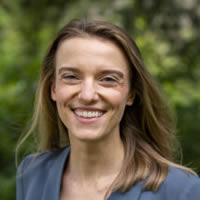 Local Labor Regulations and Job Turnover: The Case of Seattle’s Paid Sick Leave Law
Local Labor Regulations and Job Turnover: The Case of Seattle’s Paid Sick Leave Law
Hilary Wething, Assistant Professor, School of Public Policy, Pennsylvania State University
12:15-1:30pm, 8417 William H. Sewell Social Sciences Building
March 30, 2023
 Hard Choices: Understanding Decision-Making in Contexts of Punitive Excess
Hard Choices: Understanding Decision-Making in Contexts of Punitive Excess
Sandra Susan Smith, Daniel & Florence Guggenheim Professor of Criminal Justice, Harvard Kennedy School, Harvard University
12:15-1:30pm, 8417 William H. Sewell Social Sciences Building
Recent research reveals that probation—pretrial and post-conviction—often includes conditions of release that are not only difficult to follow but also place people in positions of having to choose between two or more equally negative outcomes. What explains individuals’ decisions in such conditions? Few studies examine intra- and inter-person variations in decision-making in contexts of punitive excess, so we know little about the conditions under which individuals choose between equally detrimental potential outcomes. Analysis in this presentation will draw from in-depth, semi-structured interviews among people court-ordered to participate in pretrial Electronic Monitoring (EM) in San Francisco between 2018 and 2020. Preliminary findings are counterintuitive and reveal the role for trust in legal authorities, labor market attachments, and social capital.
April 6, 2023
PAA Meeting – No Seminar
April 13, 2023
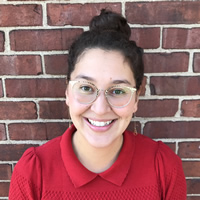 Examining Students’ Strengths: Community Cultural Wealth and Social Networks in the College-to-Workforce Transition
Examining Students’ Strengths: Community Cultural Wealth and Social Networks in the College-to-Workforce Transition
Nidia Bañuelos, Assistant Professor, Department of Continuing Studies, University of Wisconsin–Madison
12:15-1:30pm, 8417 William H. Sewell Social Sciences Building
Research on the college-to-career transition for students of color often focuses on the barriers advanced undergraduates and alumni face in achieving career goals—depicting historically marginalized students as homogenous and disempowered. New asset-based theories and survey instruments offer an opportunity to measure the strengths students of color gain from their families, cultures, communities, and experiences. Drawing from social network and Community Cultural Wealth data, collected as part of the Networks and Cultural Assets Project, this talk examines how students use their cultural assets and interpersonal relationships to navigate college, form career aspirations, develop professional identities, and maintain pride in their communities of origin.
April 20, 2023
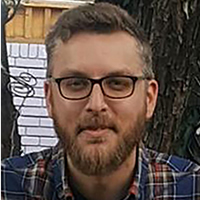 I Owe My Soul to the Commissary Store: Economic Stratification Behind Bars
I Owe My Soul to the Commissary Store: Economic Stratification Behind Bars
Michael Gibson-Light, Assistant Professor, Department of Sociology and Criminology, University of Denver
12:15-1:30pm, 8417 William H. Sewell Social Sciences Building
The American prison population is disproportionately comprised of the impoverished. Yet inside the nation’s carceral institutions, an internal economic hierarchy reflects inequalities arising within this narrower range of social class. Drawing on an 18-month prison ethnography, this talk will examine how incarcerated individuals navigating to the top of the prison’s economic and labor order may be relatively better positioned to provide for themselves and potentially prepare for release. Those in disadvantaged positions, on the other hand, may struggle against mounting hardships associated with cost-shifting and other predatory institutional practices.
April 27, 2023
 Spillover Effects of Welfare Programs
Spillover Effects of Welfare Programs
Elira Kuka, Assistant Professor, Department of Economics, George Washington University
12:15-1:30pm, 8417 William H. Sewell Social Sciences Building
Most research on the social safety net focuses on understanding its effects on recipients and their families. Professor Kuka will examine how these effects extend beyond the family by drawing on data from a Danish policy study that drastically cut welfare benefits for refugees, leading to increased property crime for the affected refugees. The study design links refugees to their neighbors, and shows large increases in property crime among non-Danish neighbors—who likely interacted more with the refugees—and no effects on Danish neighbors. Results suggest that the marginal value of public funds (MVPF) is much larger when considering spillover effects, and that optimal welfare calculations should take into account these effects.
May 4, 2023
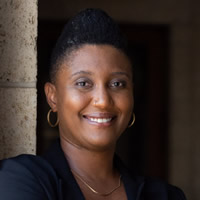 Mourning for Strangers: Black Women, Sequelae, and the Digital Afterlife of Police Violence
Mourning for Strangers: Black Women, Sequelae, and the Digital Afterlife of Police Violence
Shannon Malone Gonzalez, Assistant Professor, Department of Sociology, University of North Carolina at Chapel Hill
12:15-1:30pm, 8417 William H. Sewell Social Sciences Building
Live footage of police violence circulates widely on social media and has become ubiquitous. However, the health implications of watching these videos remains sociologically understudied. Based on 32 in-depth interviews with Black women, this presentation will examine their responses to observing police violence online. Analysis of the racialized and gendered impact of witnessing police encounters on social media platforms draws from sequelae—a traditional medical term describing the after-effects of disease—reconceptualized by Black feminist activists and scholars to characterize the lingering grief and consequences of anti-Black state violence in Black communities (Smith 2016). Professor Gonzalez will engage Smith’s use of sequelae to argue that scholars must contend with people’s digital lives when understanding the emotional toll of mourning for Black lives.